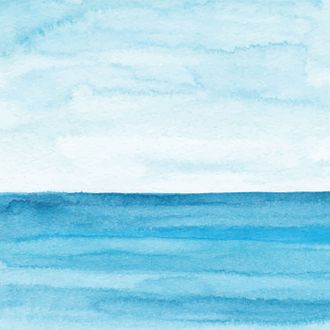
If you’ve ever found yourself chanting I hate my life or This is all a mistake, then I have a book to recommend. One summer when it felt like everything was out of control — there had been a breakup, a move, job changes, and some other personal-life tumult — I came across Pema Chödrön’s books. She’s a Buddhist nun in her 80s who lives in an abbey in Nova Scotia and advocates for embracing the worst parts of uncertainty.
A friend had recommended her to me, saying he liked to keep extra copies of her books around. “It’s good to give them to people,” he said. “Everyone suffers so much they can always use some help, some new insights.”
Well, okay, I thought. I could use some help. I could use some new insights. So I bought Chödrön’s best-known book, When Things Fall Apart: Heart Advice for Difficult Times. I hadn’t thought I’d be into books with titles like that, but then I was.
“If we’re willing to give up hope that insecurity and pain can be exterminated,” she writes, “then we have the courage to relax with the groundlessness of our situation.” Also: “We think we have some choice to make, some alternative to just hanging out with not solving anything, not resolving anything.” And later: “We will never get everything together.” Combined, these felt like an aha moment for me. Almost like that magic trick where you whip the tablecloth out from beneath all the place settings in one quick jerk.
Born Deirdre Blomfield-Brown in New York City in 1936 (she’s 83), Chödrön began studying Tibetan Buddhism in 1972 and became an ordained nun in 1974, at 38. During her studies, she was given the name Pema Chödrön, which roughly translates to “lamp of the truth.” Before becoming a nun, she’d been married and divorced twice, and the story of how her second marriage ended is another detail that got my attention: “I was standing in front of our adobe house drinking a cup of tea,” she writes. “I heard the car drive up and the door bang shut. Then he walked around the corner, and without warning he told me that he was having an affair and he wanted a divorce.” After this divorce, she fell into a depression that eventually prompted her interest in Buddhism — she has said that in the depths of her grief, she came across an article by a monk who suggested making peace with discomfort rather than trying to banish it.
Chödrön has gone on to speak and write extensively about discomfort and uncertainty (her books are mostly transcriptions of her talks), and this message — that discomfort and uncertainty can’t be avoided but can instead be welcomed — was what resonated with me, too.
At first, it seemed gloomy, but in reality it was surprisingly light. It was funny, too. “As long as you are wishing for things to change, they never will,” Chödrön writes in Start Where You Are: A Guide to Compassionate Living. “As long as you’re wanting yourself to get better, you won’t.” Well, shoot. “Without giving up hope — that there’s somewhere better to be, that there’s someone better to be — we will never relax with where we are or who we are … Hope robs us of the present moment.”
In addition to living in an abbey, Chödrön is a vegetarian, she wears robes, and she cuts her hair short. “Because it’s a monastery, there’s nothing you can do at Gampo Abbey that’s fun,” she writes, “unless you like to meditate all the time or take walks in nature, but everything gets boring after a while.” She adds, “It’s just a very uncomfortable place” because “you can’t get away from yourself there.” Chödrön has two children and multiple grandchildren, and I’ve wondered how being a nun has affected her family life. Her kids were 13 and 15 when she decided to pursue this path. “How did they take that news?” Oprah once asked. “My son … says he took it in stride,” Chödrön replied, “but my daughter … took it as quite a rejection.”
It’s reassuring that even a nun who writes so insightfully also has a lot of pain in her own life, from the serious to the petty; she has also written about how she’s still “haunted by distaste” when she hears that things are going well for certain people she knows. I appreciated her insight into why we behave horribly sometimes toward the people we care about: “Because you’re lonely, you say cruel words; because you want someone to love you, you insult them.”
This may be cheesy, but her books have felt like a life raft for me, like a kickboard to hold on to in a sea of change. This way of seeing the world — What if I accepted this? And that, and even that other thing, too — feels revelatory, like it can’t be unseen.




